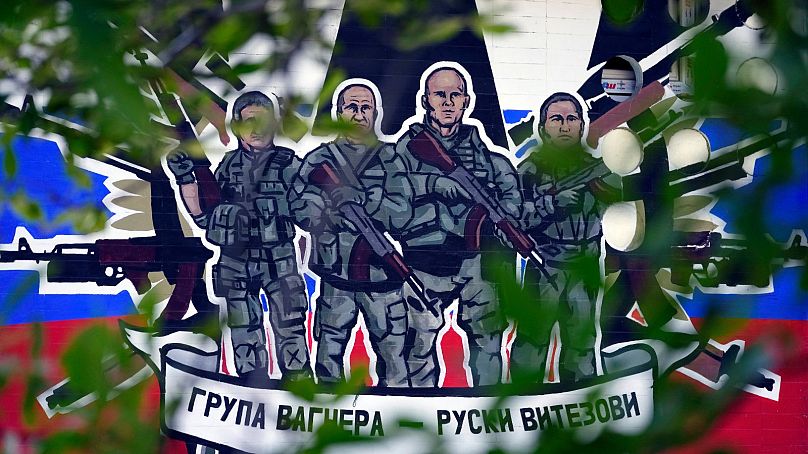The group has been accused of committing human rights abuses in Ukraine, Africa and Syria.
Yevgeny Prigozhin, a Russian oligarch and a close ally of Vladimir Putin, admitted on Monday that he was behind the Wagner paramilitary group.
Human rights activists have accused the group -- a private network of mercenaries -- of committing war crimes in Ukraine, Syria and Libya.
Putin has always denied any link between the Kremlin and Wagner. But Prigozhin's admission finally draws a direct link between Wagner and the Russian government.
In a post on the social media profile of the Concord group, a catering company which is half-owned by Prigozhin, the Russian oligarch said he founded the Wagner group to send competent fighters to the Donbas region in eastern Ukraine in 2014, the same year that Russia annexed Crimea.
Prigozhin, who's known as "Putin's chef" for hosting dinners attended by Putin and other Kremlin officials, called the Wagner mercenaries "patriots".
"And now a confession [...] these guys, heroes, defended the Syrian people, other people of Arab countries, the poor Africans and Latin Americans, they became a pillar of our homeland", he wrote, admitting that the group was involved in the chilling operations in Syria, Mali, Libya and others.
To these countries and more, the EU found that the Wagner group recruited, trained and sent mercenaries "to fuel violence, loot natural resources and intimidate civilians in violation of international law, including international human rights law".
Though Prigozhin's statement testifies to the presence of the Wagner group in Ukraine in 2014, it does not necessarily confirm their presence in the country now.
But in late March, the UK defence ministry declared in an intelligence update that some 1,000 Wagner mercenaries, including senior leaders of the organisation, had been deployed in eastern Ukraine to fight in support of Russian troops.












